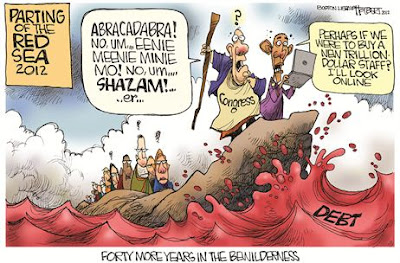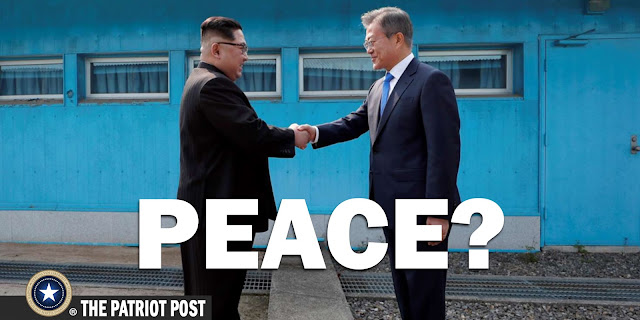Why Scientists Disagree About Global Warming
I was recently reminded of the climate debate when seeing a trailer for Al Gore’s sequel to his alarmist climate movie, and shouts in the theater both against & for.
We continue to hear that “97 percent of scientists agree” on the causes & consequences of climate change -- that recent and projected climate change is significantly man-made and dangerous. Many or most uninformed people probably take these loud voices at face value, without digging deeper as to the validity of that figure, and in the face of vague statements, asking where exactly consensus lies. And assume they must either agree with the worst case projections and proscribed policies or be branded science deniers. “…the climate science establishment has become intolerant to disagreement and debate, and is attempting to marginalize and de-legitimize dissent as corrupt or ignorant.” This has the intended result of "herding" -- among the general public, but also to some extent among scientists. Recall “Climategate” in 2009. Even if the consensus number were accurate, it wouldn’t be the first time in the history of science that a consensus was later proven wrong.
We continue to hear that “97 percent of scientists agree” on the causes & consequences of climate change -- that recent and projected climate change is significantly man-made and dangerous. Many or most uninformed people probably take these loud voices at face value, without digging deeper as to the validity of that figure, and in the face of vague statements, asking where exactly consensus lies. And assume they must either agree with the worst case projections and proscribed policies or be branded science deniers. “…the climate science establishment has become intolerant to disagreement and debate, and is attempting to marginalize and de-legitimize dissent as corrupt or ignorant.” This has the intended result of "herding" -- among the general public, but also to some extent among scientists. Recall “Climategate” in 2009. Even if the consensus number were accurate, it wouldn’t be the first time in the history of science that a consensus was later proven wrong.
I’ve read this serious 110-page booklet (online version available at https://www.heartland.org/publications-resources/publications/why-scientists-disagree-about-global-warming) from
the Nongovernmental International Panel on Climate Change (NIPCC), and with my
graduate degree in Astrophysical, Planetary & Atmospheric Sciences, find it
compellingly scientific in disputing the claim of consensus, and in fact
demonstrating the contrary, and presenting hard science supporting the skeptics.
It is a summary of a multi-volume larger report, and begins
by showing the unscientific nature of the 4 most commonly cited (e.g., by the
UN’s IPCC) literature surveys, and that more objective independent research
shows a clear lack of consensus, especially on the most central issues of CO2
sensitivity and projected impacts. It discusses the reasons scientists
disagree, and provides a detailed survey of the physical science of global warming.
It discusses the complexity of this multidisciplinary
science, which few specialty scientists surveyed have a full grasp of, uncertainties from observations and limitations of global climate models
(GCM’s -- various forcings and feedbacks unaccounted for), politicization of
the IPCC, and forms of bias, including ignoring the null hypothesis. It discusses flawed projections (including
overestimates of CO2 sensitivity), demonstrably false postulates and
circumstantial evidence (e.g., extreme weather and droughts). Theories and models don’t explain the leveling of
temperatures over the most recent 18 years.
And the models perform poorly even for re-creating (“hindcasting”) recent variations, let alone
forecasting many decades into the future.
It presents several global temperature histories clearly showing that 20th
century increases (and even worst case projections) are well within natural and
non-disastrous climate variations driven by other factors (e.g. solar). I saw this first-hand in Greenland, where the climate was much warmer when the
Vikings settled there about 1000 A.D. than today, and the glaciers
significantly smaller than today. Then they were frozen out by the Little Ice
Age a few hundred years later. And there has been some even pre-industrial warming since.
This would suggest that the most prudent approach for government
policies is, rather than excessive socio-economic impacts of draconian CO2
reductions, focusing on preparing for the larger natural variations (e.g., recent California drought). And other urgent
matters (e.g., geopolitical, terrorism & state sponsors, refugees, nuclear proliferation). Alarmists cite the precautionary principle – that even if the science isn’t settled, we should act as if it were, just in case. By the same logic, being in the defense
industry, I could make a case for drastic expenditures to defend against
nuclear missiles, which arguably could have a similarly drastic human impact as
any worst case climate projections. Or
as an emergency preparedness specialist, for vast expenditures to protect our
electrical grid, or mitigate the “Big One” (earthquake) in L.A., which
likelihoods, impacts and vulnerabilities are very well established.
Mike Hulme at King’s College calls climate change “a classic
example of …’post-normal science”…where facts are uncertain, values in dispute,
stakes high and decisions urgent….because the idea of climate change is so plastic,
it can be deployed across many of our human projects and can serve many of our
psychological, ethical and spiritual needs.”
Yes, it is an ersatz religion to many activists, and cause celebre for partisan politicians (e.g., Obama's claim that climate change is the greatest threat we face). Stephen Schneider said “to reduce the risk of
potentially disastrous climate change… we need to get some broad based support,
to capture the public’s imagination.
That, of course, means getting loads of media coverage. So we have to offer up scary scenarios, make
simplified, dramatic statements, and make little mention of any doubts we might
have.” Al Gore fills the bill nicely.




Excellent, Mark; although my non-scientific mind had to re-read this a few times to understand your message. I've often wondered if the creating of albedo changing surfaces has anything to do with warming. Is there any research on the matter, or do you have an opinion on this?
ReplyDeleteThere is an "urban heat island" effect (I believe included in models) due to higher absorption by asphalt, etc. And increased evaporation increases clouds with their higher albedo. Decreased or sooty snow/ice would decrease albedo.
ReplyDelete